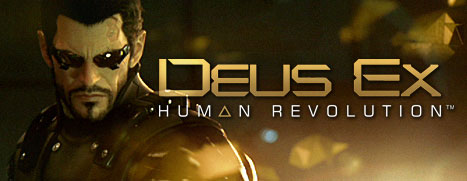 Deus Ex: Human Revolution was a very good game. But it had one big problem: those frustrating, out-of-place boss battles. At the Game Developers Conference in San Francisco, Eidos Montreal's senior game designer Francois Lapikas addressed the boss battles once and for all: The team didn't put enough thought into them, he said, and weren't aware what a problem they really were until the game shipped.
Deus Ex: Human Revolution was a very good game. But it had one big problem: those frustrating, out-of-place boss battles. At the Game Developers Conference in San Francisco, Eidos Montreal's senior game designer Francois Lapikas addressed the boss battles once and for all: The team didn't put enough thought into them, he said, and weren't aware what a problem they really were until the game shipped.
"We didn't have a direction sheet for boss fights," Lapikas said, referring to the complex and detailed sheets that the team created for other systems like hacking and conversation. "We kind of forgot about it."
"Because we didn't have these direction sheets, we didn't know what we were doing with boss fights. We saw them as a way to break the pacing, more than as a way to test the player's skills. That's a big factor of why you can't go through them using social or stealth."
The team didn't do any pre-production on the boss fights, and designed them as they were developing the game itself. "We thought that by putting enough ammo and enough weapons in the room, that would be enough for players to just defeat them and say 'That was nice, let's go on.'"
Playtests flagged the boss fights as a problem, but they didn't flag them as a serious problem. "It was only when we shipped, and we saw the complaints, that we understood. It was a surprise to us, actually. It was a big surprise, and not a good one," Lapikas said.
"I don't really have a solution for boss fights, except that next time we're going to think about it more. They were a big part of the game, and we should've put more effort into them. So, truly sorry about that."
With that, there was some light applause and laughter. Clearly, many of the game developers and aspiring game developers in the room enjoyed the game, but agreed about the boss fights. When asked about the possibility of fixing or removing them during the Q&A, he said that it just wasn't that easy to just patch them, or remove them.
Some other interesting notes on Lapikas' talk, in which he discussed how they created the other systems in the game:
- For a while, Human Revolution gave players unlimited energy to power their augmentations, since the developers were getting feedback that players wanted more energy. But then they found that the takedowns ruined the game, and that players would just stealth and takedown their way through every level. No matter how many energy bars they added, players would want more. But when it comes down to it: "Deus Ex is a game about scarcity of resources."
- The team didn't know about L.A. Noire while they were designing the conversation boss-battles. They worried that players wouldn't be able to read the feedback from the characters they talk to, but found in playtesting that players liked the uncertainty, because it felt real.
- The hacking game, which was based on hacking in the real world, was almost unworkable. Lapikas said: "At some point it was so complicated that I didn't even know what it was doing." Then, someone suggested adding a graphical element. Lapikas' initial reaction was negative, but he realized that by making the hacking graphical, he could easily implement all of the complicated systems he had made and make them playable. Two weeks later, they had a working version of the hacking minigame. It was the earliest system to be done in the game, finished two whole years before the game's completion.
- The team came up with a bunch of influences that they wanted to use for every system, which explains why the game felt like a love letter to a bunch of different games. Among those specific influences were Rainbow 6 Vegas's cover system, FEAR's AI, and Call of Duty's health system.
- The way that the team described the overall vibe of the game was this simple, kind of perfect combination: "Children of Men meets X-Men."














